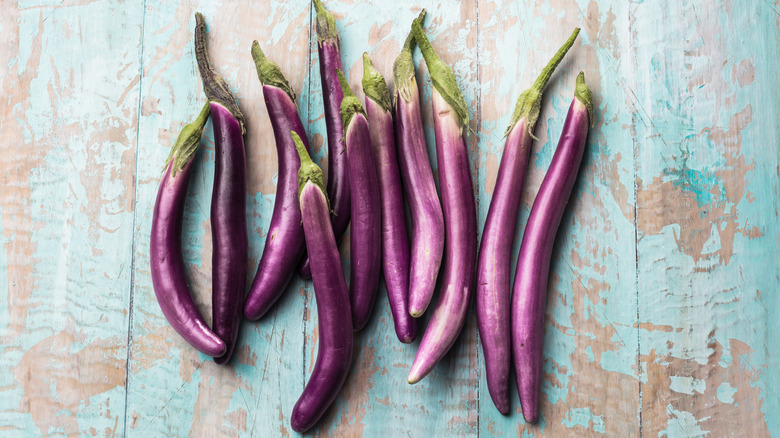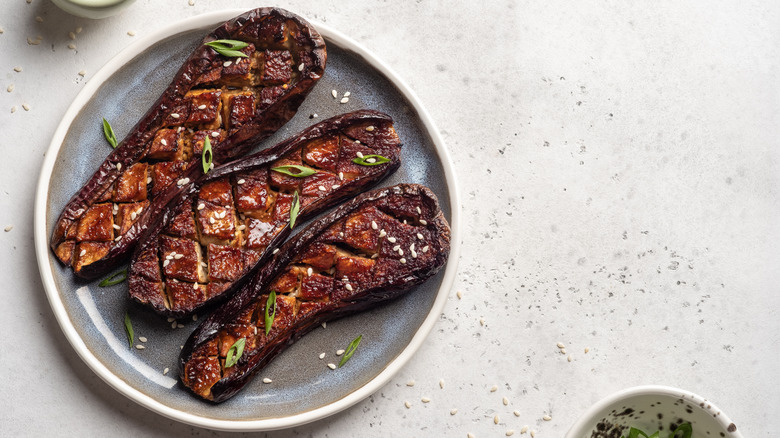The Best Cooking Method For Tender Japanese Eggplant
While you may be used to American globe eggplants, Japanese eggplants are another popular variety with many delicious distinguishing characteristics. It's longer, thinner, and creamier than American and Italian eggplants with few seeds and thin skin. Despite these differences, roasting is a cooking method that benefits Japanese eggplants as much as their Western counterparts.
While stir-frying and braising eggplants are popular in Japanese and Asian cuisines, roasting them is a more hands-off method that allows them to develop their decadent creaminess and a more complex richness. Japanese eggplants are famous for their mildly sweet flavor, which roasting will further caramelize. Their thin skin will also take on a pleasant crispness in the oven, providing a nice textural contrast for their jammy pulp.
Since Japanese eggplants are small and thin, they won't need as much preparation as the larger varieties. You don't have to worry about peeling them or cutting them into cubes. All you have to do is slice them down the middle lengthwise, brush them with your favorite seasonings or marinades, and throw them in the oven. In 20 minutes, you'll have the most flavorful, melt-in-your-mouth tender vegetables to serve as a show-stopping side dish, chop and mix into a stir fry, or stuff into a tasty sandwich.
Tips and flavor pairings for roasted Japanese eggplant
Like most eggplant varieties, Japanese eggplants have super absorbent flesh. Plus, a lack of seeds means there's more room to absorb any tasty marinade or seasoning you have in mind. While a simple brush of olive oil, salt, and pepper is enough to ensure a moist, creamy interior, and sweet, earthy profile, Japanese eggplants will benefit from complex glazes even more. Make criss-crossed slits in your eggplants before brushing them with your glaze of choice to optimize absorption. If you're using a thick, multi-ingredient sauce, you can take the eggplant out of the oven every few minutes to brush more on, similar to basting for guaranteed moisture and tenderness.
You can also draw inspiration from the complex sauces used in Asian cooking to create rich marinades bursting with fragrance and umami. Soy sauce, miso paste, and fish sauce are all classic umami foundations to blend with sesame oil, tangy rice vinegar, and aromatics like scallions, garlic, and fresh ginger. Even if you decide to roast them with minimal seasonings, you can use premade or store-bought complementary sauces. A drizzle of pesto, Chinese chili crisp oil, tahini sauce, or teriyaki sauce would all be great options for a tasty finish.

